10 feeding tricks to keep your backyard buzzing with nectar-loving birds.

In many ways, a hummingbird is the Goldilocks of the bird world. Pleasing one or more of these finicky fliers take a fair bit of know-how, but when everything is just right, they make themselves at home in your neighborhood. From the ruby-throated in the East to the many species found in the West, hosting these beauties is well worth the effort.
RED-EYE FLIGHTS
Hummingbirds are attracted to bright colors, especially red. The eyes of hummers have high concentrations of cones that heighten their ability to see reds and yellows while dulling shades of blue. Curiously, while red is a clue for them to find food, that alone won’t keep the birds coming back for more. When researchers altered the nectar levels in flowers, hummingbirds quickly keyed in on the blooms that offered elevated levels of nutrients, even if they weren’t red.
NO. 1 FOOD
Premade concentrate is available in stores, but there is no need for red dye. Clear nectar is best. It is also easy to make your own hummingbird cocktails. Stick to water and white table sugar in a 4 to 1 ratio—the sweeteners spoil quickly. Heating the water helps dissolve the sugar. Be sure to cool it down so it’s not too hot or cold, but just right.
REFRESH EARLY AND OFTEN
Denne historien er fra June/July 2019-utgaven av Birds & Blooms.
Start din 7-dagers gratis prøveperiode på Magzter GOLD for å få tilgang til tusenvis av utvalgte premiumhistorier og 9000+ magasiner og aviser.
Allerede abonnent ? Logg på
Denne historien er fra June/July 2019-utgaven av Birds & Blooms.
Start din 7-dagers gratis prøveperiode på Magzter GOLD for å få tilgang til tusenvis av utvalgte premiumhistorier og 9000+ magasiner og aviser.
Allerede abonnent? Logg på
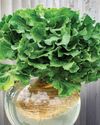
Basics of Hydroponics
Use these top tips and plant picks to have a successful soil-free garden
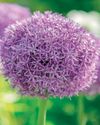
Rooted in Resilience
These hardy perennials will thrive in most zones
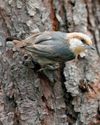
Social and Supportive
Brown-headed nuthatches take a helpful approach to raising their young
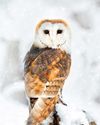
All About Owl Pellets
And why you should give a hoot about them
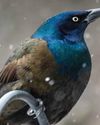
Ask the Experts
Advice from our pros about houseplants, bird feeding and more
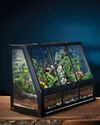
BRING THE OUTDOORS IN
Making a terrarium is about as close as you can get to a Zen DIY project. Once you have gathered the proper materials and squared away your plant selections, it's as simple as layering it all together and watching your mini ecosystem thrive. Here, I'll walk you through my foolproof process and cover all the required elements for good filtration, healthy soil, strong root growth and resistance against fungus and disease.

GROW THIS. NOT THAT
Six easy-to-grow houseplants—and six that may not be the right choice for you

Winter MAGIC
Forecasts may be frigid, but grab your binoculars because birding opportunities are still incredible
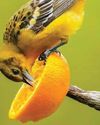
Sense or Nonsense? - Why some birds can taste and smell - but others can't
Does a porcelain berry taste like a blueberry to a gray catbird? Does a block of lard smell like frying bacon to a northern flicker? The short answer is no. While some avian species do have a well-adapted sense of taste or smell, they can't distinguish between flavors and odors the way humans can. They're not picking up every ingredient in the suet you put out, says José Ramírez-Garofalo, an ornithology researcher at Rutgers University in New Jersey and the director of Freshkills Biological Station in Staten Island, New York.

Maple Mania - Amazing facts about this fall foliage mainstay
Amazing facts about this fall foliage mainstay